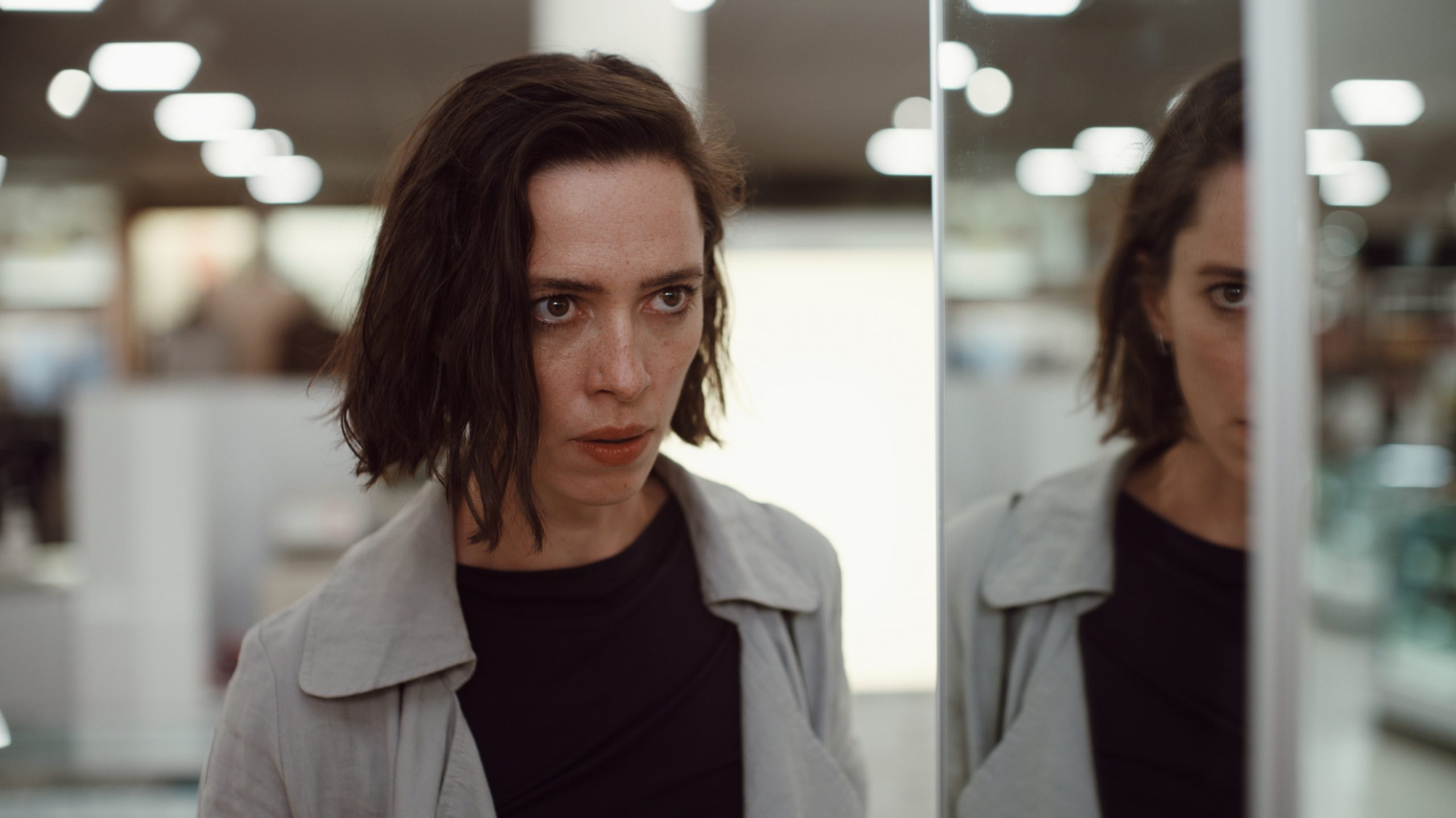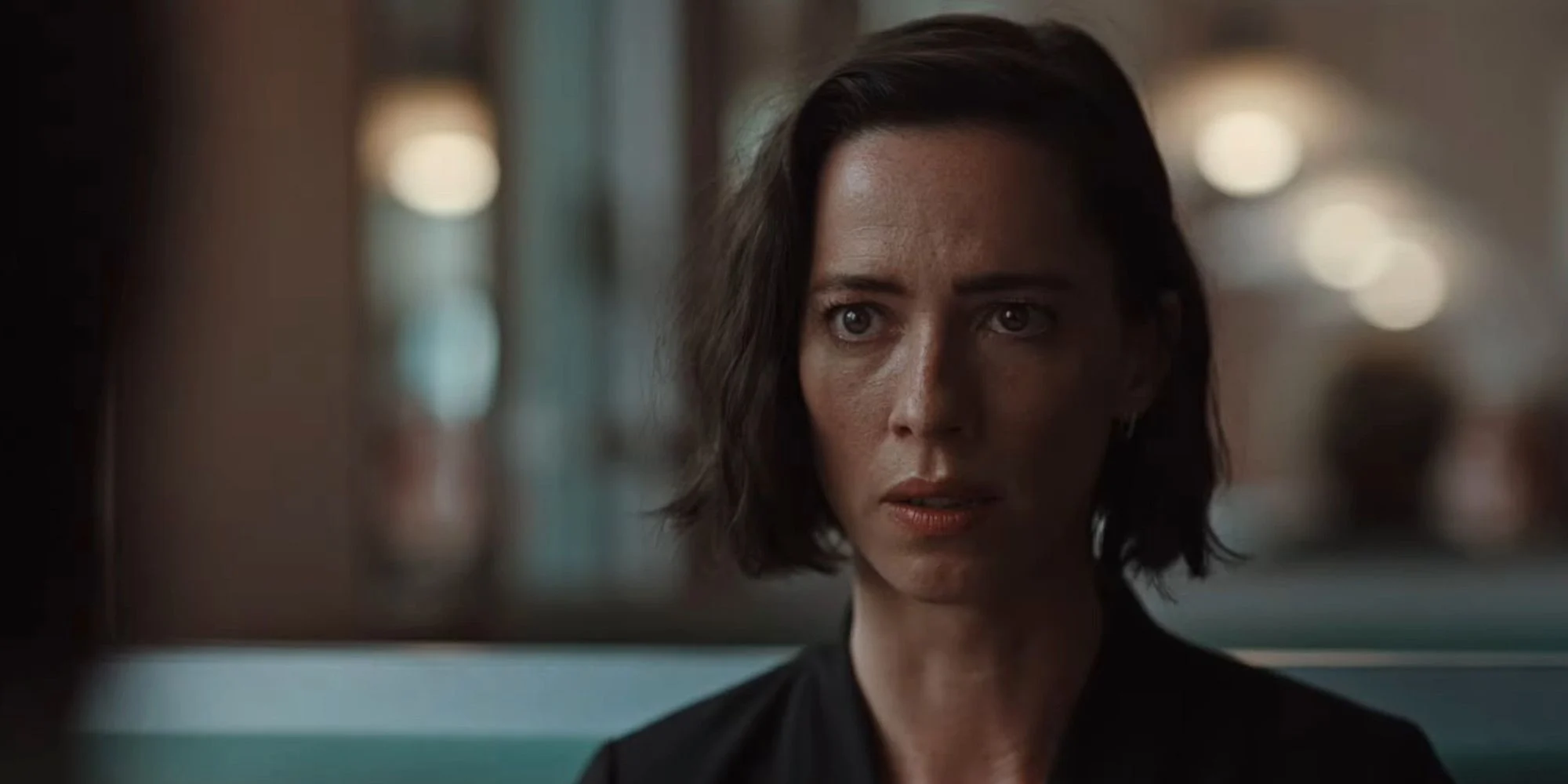
In Resurrection, Rebecca Hall stars as Margaret, a successful executive at a biotech company, whose daughter is about to depart for college. A mysterious man, David (Tim Roth) from Margaret’s past suddenly appears and Margaret’s discomfort quickly grows with dangerous consequences.
Semans’ film is a deeply disturbing exploration of trauma and we chatted to the writer-director exactly how it all came to be and how his own fears informed the film.
I want to go right back to the beginning, how did the idea for this originate?
I was looking for something very basic, elemental and primal to base a story around some kind of kernel that felt universal, and felt visceral. And I thought, ‘What is more primal and elemental than parents protecting a child that is threatened?’ That is something that is the most basic conflict that I could think of, a child is somehow endangered by some malevolent outside force, and the parent must act to protect that child.
It’s something that I felt anybody, whether you have children or not, could relate to. And it got me thinking about the parental revenge subgenre, or parental vigilante subgenre, which is very popular and enduring from movies as disparate as Death Wish to Taken to The Revenant to In The Bedroom. I, at that time and still do have a lot of anxieties around parenting, and was interested in parental fear. That subgenre very much plays on basic parental fears. And so that’s how it started. I tried to build a story in this space, according to my own tastes and predilections.
And I read that you weren’t a parent when you were making this, but you are now. Has that changed anything in how you view the script or the film? Or if there’s anything that you would do differently?
It hasn’t changed much. I feel like when I wrote the script, I was thinking about basic parental fears. Will I be a good parent? Am I a good parent? Can I keep my child safe? Can I protect my child from harm, injury, exploitation, et cetera? And I imagined that was something that would be a potent and constant anxiety when having a child. Although I didn’t have a child at the time, it felt very real to me.
Now that I do have a child, I am perpetually anxious and frightened that something is going to happen, that I am going to fail in my duties as a parent. And as much as I love being a parent and as much as I love my daughter, it creates this very intense, nonstop anxiety.
What are the sort of building blocks for creating that almost oppressive atmosphere?
God, that’s a difficult question, because I’m not sure there’s a particular method or a particular philosophy. You just try. And when you’re telling a story like this, that is a slow burn psychological thriller that’s meant to be suspenseful, that is meant to draw that suspense out over the course of two acts, and then allow it to explode or blossom in the third act, you just try and build it into each scene and have each successive scene build on what came before, inform what came before and increase the sense of stakes and increase the sense of tension. That’s how you tell the story.

Credit: Universal Pictures
When you make the movie, every decision you make, you try to stay true to those impulses. The truth is, I don’t really have an answer for that, other than you try to create an effect. And everything, every decision you make goes towards the creation of that effect, and you hope it lands.
Rebecca Hall is phenomenal in the lead role. And you’ve previously spoken a lot about that long monologue that she has, which is an uninterrupted shot. How did you prepare for it? Or did it evolve from page to screen at all?
It evolved as I was writing new drafts of the script. The text of the monologue would evolve, but the text that Rebecca read of the monologue when she first read the script was almost identical to what she read on the screen. We didn’t work together to edit that model or to adapt it in any way. Rebecca makes the job of the directors so easy, because she’s not only amazingly skilled, she’s also amazingly prepared and frequently requires nothing, no input, no direction, no support, she does it all herself.
In the case of that monologue, I don’t recall us talking about it at all on the day, and I don’t recall us getting into it in the lead up to the shoot. It was always there, she knew what to do. She showed up, and she delivered it twice. Both takes were absolutely brilliant. And that was it. It was incredible to see. It was an amazing relief, because I had to do so little, it was really all her. I can’t take credit for any of that, except for the fact that I wrote it.

Credit: Universal Pictures
I think the only change in that monologue that came as a result of Rebecca’s involvement was that the character of Margaret was originally American. And at a certain point, early in pre-production, Rebecca asked if she could use her native accent. And we thought that was fine. And so we made a very slight adjustment to make the character of a Brit. But beyond that, Rebecca just worked with what was given to her.
The film dips in and out of this nightmare that Margaret goes through. Do you and Rebecca know where the final breaking point for her is?
I can’t speak for Rebecca. I’m sure she made that decision for herself somewhere along the line but we didn’t get into it and she required no guidance from me on that score. I have my opinions and I have my preferences in terms of the ending, and where the line between fantasy and reality lies, and what might actually be going on. But the ending is purposefully ambiguous. It’s not a riddle. It’s not something where there’s a series of clues and if you look closely, you will see the answer to what is happening.
It is designed to be open to interpretation and hopefully, in a way that is provocative, interesting and consistent with the themes and is dramatically satisfying. I don’t want to say, Oh, this is what’s happened and this is the correct reading. I really encourage people to interpret it in whatever way they find most satisfying and exciting. And I do hope it works for them. The ending is ambiguous in terms of precisely what happens, but hopefully is emotionally unambiguous, that it completes the story and completes this narrative of redemption in a way that feels psychologically consistent, even if it moves into territory that feels impossible.
Resurrection is available on digital platforms now.



